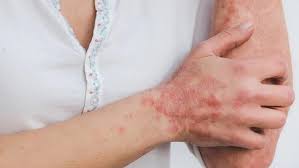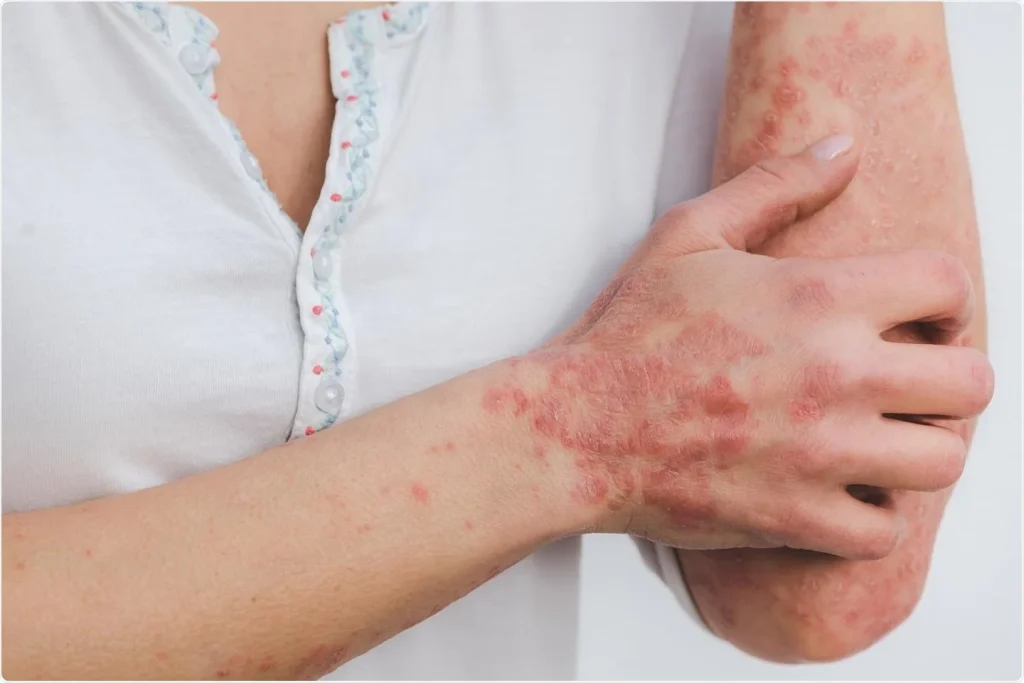Myths About Psoriasis
Psoriasis is a chronic autoimmune condition that primarily affects the skin, leading to the rapid growth of skin cells and the formation of red, flaky patches covered with thick, silvery scales. Despite being a well-documented condition, numerous myths and misconceptions surround psoriasis, leading to misunderstandings, stigma, and misinformation. In this section, we aim to debunk some of the most common myths about psoriasis, fostering a better understanding of the condition and promoting empathy and support for those living with it.
Myth 1: Psoriasis is Contagious
One of the most pervasive myths about psoriasis is the belief that it is contagious. Many individuals misunderstand the nature of this skin condition, often seeing someone with visible psoriasis signs and feeling hesitant to be near them. In reality, psoriasis is not contagious; it arises from an immune system dysfunction and genetic factors. Those living with psoriasis can interact safely with others without the risk of spreading the condition.

Myth 2: Psoriasis Only Affects the Skin
While psoriasis is primarily known for causing skin symptoms, it is essential to recognize that it can also significantly impact overall health. Many individuals with psoriasis experience a range of other health issues that go beyond skin involvement. These can include psoriatic arthritis, which can be a painful and debilitating condition that affects joint health. Furthermore, psoriasis has been linked to a higher risk of cardiovascular disease, metabolic syndrome, and depression, emphasizing that it is not solely a cosmetic issue but a complex, systemic condition.
Myth 3: Psoriasis is Caused by Poor Hygiene
Another common myth is that psoriasis is caused by inadequate hygiene or dirty skin. This misconception can lead to stigma and shame for individuals suffering from the condition, who may believe that their psoriasis is a result of personal neglect. In truth, psoriasis results from an autoimmune process that causes excessive skin cell production, unrelated to hygiene practices. People with psoriasis maintain good hygiene, but this will not alleviate their symptoms or resolve the underlying autoimmune issue.
Myth 4: Psoriasis Only Affects Adults
Many people assume that psoriasis only occurs in adults, leading to the incorrect belief that children are immune to the condition. However, psoriasis can develop at any age, including childhood. It is particularly concerning when young children or adolescents experience psoriasis, as it can significantly affect their self-esteem and social interactions. Early intervention and education are critical in managing the condition and addressing the emotional challenges that come with it.
Myth 5: Sun Exposure Cures Psoriasis
It is a common misbelief that sun exposure can serve as a “cure” for psoriasis. While sunlight can improve symptoms in some individuals due to its UV rays acting as an anti-inflammatory agent, excessive sun exposure poses significant risks, including skin damage and an increased risk of skin cancer. Moreover, reliance on sun exposure as a treatment can lead to inconsistencies in symptom management. It is crucial for individuals to work with healthcare professionals to develop a comprehensive skincare and treatment plan tailored to their needs, rather than depending solely on sun exposure.
Myth 6: Diet Has No Impact on Psoriasis
Some individuals believe that diet does not influence psoriasis symptoms. However, recent research suggests that certain dietary changes may help reduce inflammation and improve skin health in individuals with psoriasis. Foods rich in omega-3 fatty acids, antioxidants, and vitamins may suppress inflammatory pathways and support skin health. While dietary modifications alone may not “cure” psoriasis, they can complement medical treatments and contribute to overall wellbeing. It’s essential for individuals with psoriasis to engage in open conversations with healthcare professionals about the potential benefits of an anti-inflammatory diet.
Myth 7: All Forms of Psoriasis Are the Same
Psoriasis manifests in various forms, each with distinct characteristics and symptoms. The most common form is plaque psoriasis, which presents as raised, red patches covered with silvery scales. However, other forms include guttate psoriasis, inverse psoriasis, pustular psoriasis, and erythrodermic psoriasis, each of which has unique presentations and treatment considerations. By assuming that all forms of psoriasis are the same, individuals may overlook the specific needs of their condition and the importance of tailored treatment approaches.
Myth 8: Psoriasis is Just a Skin Condition
Although psoriasis primarily affects the skin, it profoundly impacts the quality of life for those affected, influencing mental, emotional, and social wellbeing. Many individuals with psoriasis report feelings of embarrassment, anxiety, and depression, attributable to the visible nature of their condition and the misunderstood stigma surrounding it. By framing psoriasis as merely a skin condition, the wider implications on mental health and social interactions are often overlooked. Comprehensive care must address both the physical and emotional aspects of living with psoriasis to foster holistic wellbeing.
Myth 9: Treatments for Psoriasis are Inaccessible or Ineffective
A common concern for individuals new to psoriasis is the belief that treatments are either inaccessible or ultimately ineffective. With numerous advancements in medical science, there are various treatment options available, ranging from topical treatments to systemic therapies and biologics. While some individuals may experience challenges in finding the right treatment or managing insurance, many healthcare providers can assist in navigating these issues. Moreover, what works for one person may not work for another, underscoring the importance of personalized treatment plans and ongoing communication between patients and providers.
Myth 10: People with Psoriasis Can’t Live Full Lives
Another damaging myth is the belief that individuals with psoriasis cannot lead fulfilling, happy lives due to their condition. While psoriasis can present challenges, particularly in social situations or during flare-ups, many people successfully manage their symptoms and lead robust, active lives. With effective treatment, education, and support, individuals with psoriasis can engage in work, relationships, and hobbies just like anyone else. Raising awareness about psoriasis and promoting understanding can help reduce stigma and support those affected in living their lives fully.
Conclusion
Understanding psoriasis and dispelling the myths that surround it can significantly improve the quality of life for those affected. By addressing misconceptions, we foster a more informed and empathetic society, empowering individuals living with psoriasis to seek support and share their experiences. Ultimately, improving awareness around psoriasis will help promote effective treatment and support systems, benefiting both those with the condition and the wider community. Through education, empathy, and awareness, we can break down stigma and make strides toward a more inclusive understanding of chronic health conditions.



